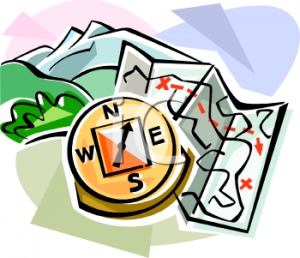 There are two opposing camps when it comes to how an author approaches writing their novel. On one side are the story ‘pantsers’, those who sit down with only a vague idea of their story and start typing. They discover the story through the act of writing it, usually through a multiple re-drafting process. On the opposite side are the ‘planners’, those authors who sit down and design a story to the nth degree before they actually begin the first draft. They might write almost as many words in the outline as they do in the first draft, but end up with fewer re-writes most of the time. Both camps have their avid followers who trumpet the benefits of doing it their way while pointing out the drawbacks of the other philosophy.
There are two opposing camps when it comes to how an author approaches writing their novel. On one side are the story ‘pantsers’, those who sit down with only a vague idea of their story and start typing. They discover the story through the act of writing it, usually through a multiple re-drafting process. On the opposite side are the ‘planners’, those authors who sit down and design a story to the nth degree before they actually begin the first draft. They might write almost as many words in the outline as they do in the first draft, but end up with fewer re-writes most of the time. Both camps have their avid followers who trumpet the benefits of doing it their way while pointing out the drawbacks of the other philosophy.
I’ve found that most authors fall somewhere in the middle between these two philosophies. We plan some, and we free-write some. Authors will shift along the spectrum between the two philosophies from one project to another, or as their level of experience changes.
I started as a total discovery writer, complete with many drafts of my first novel as the story evolved and I figured out what I was really writing about. Over time, and as I’ve gained a better mastery of the craft, I’ve crept across the spectrum toward the opposite camp. The more of an outliner I become, the more up-front work I invest in a story before beginning to write. Once the outline is ready, I can schedule a ‘burst-writing’ session – a focused period, several days to a week, where I can pound out tons of work based on that outline. I did that last year and wrote 52,000 words in one week. I’m planning to do so again soon with my next novel.
I’ve developed the following outline process:
1. First I do all the high-level brainstorming for the new story. This can take a while as I chew on a new idea and work it from the initial proposal into a viable story worthy of serious consideration. Lots of ideas don’t make it past this first step.
2. Once I feel the story has promise and I’m starting to get a good sense for it, I write down the foundational information I’ve developed so far. This includes character sketches, world-building, and initial plot ideas. The process of writing it all down and trying to work it into a logical, comprehensive whole identifies gaps and leads to new inspiration in fleshing out the world, characters and plot.
3. I develop the high-level plot outline. In my current story, this ended up being about 8000 words. I choose scenes, decide which characters to populate them, high-level conflicts, and how each scene will drive the plot forward. At this point, I’m looking to get my first full view of the complete story arc from beginning to end. I develop arcs for each major character to ensure I’m addressing things from each of their perspectives, and considering the plot through each of their eyes. This process yields tons of fresh insights, new twists to consider, and helps the story really come alive.
4. If this is a brand new story (as opposed to a sequel), I find it useful to write the first few chapters based on the high-level outline. This helps solidify the character voices and the feel for the world and how the story is going to work. I get ‘locked in’ to the story this way. I can usually tell if I’m on the right track now, or if there’s something still fundamentally wrong with the plot, characters, or world.
5. I develop what I call a mid-level outline. I run through the outline again, fleshing out the scenes, clarifying and adding detail. For some of the important scenes, I add sections of dialogue or work out how I’m going to approach the action sequences. This is particularly helpful in planning complex endings.
This is the step I’m on right now. I’ve taken the 8000 word high-level outline and expanded it to about 15,000 words so far. I’ll probably complete the outline at about 20,000 words or so. At that point, I could do another pass and produce even more detail, but the story is really coming alive for me, so I don’t think that will be necessary.
When I begin writing scenes for the first real draft, I keep the outline in mind, but this is where I free-write. The outline is the framework and helps me identify when my free-writing takes me off on new tangents. Sometimes those tangents are awesome – a flash of inspiration that I could not have figured out unless I was in ‘the zone’ writing full scenes. Sometimes they’re a bad idea that takes the story off a cliff. Any time I break the framework, I need to go back and analyze how this change will impact the story. Either it’s brilliant and the rest of the story needs to change as a result, or it’s a false-start that needs to be chopped.
If I decide to keep it, I have to make sure I can still maintain the story integrity. I have to ask: do my plot points and story arcs and character arcs still make sense? Will pacing be right? Will the ending still work? Adjustments often need to be made.
This sometimes seems like a lot of work, but it’s actually a lot less than the alternative. This way I can identify the impacts to the story early on and choose how to address it. Before, I would keep writing, maybe all the way to the end of the story before I realized other components needed to be changed. That would require an entire new draft, which was a lot more re-work and took a lot more time.
Through this blended outline/free-write approach, I’ve dramatically cut down how long it takes to write even a big-fat-epic-fantasy novel like mine.
How do you approach a new novel?







